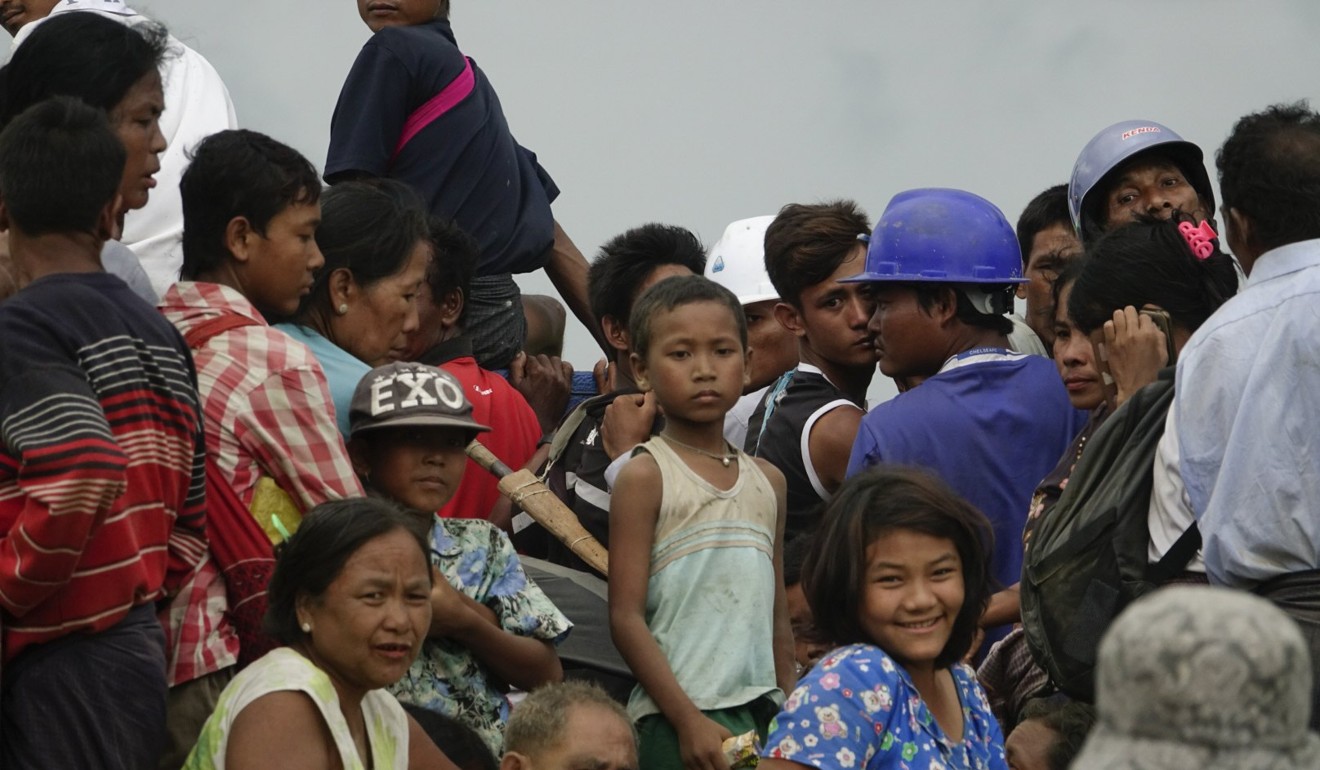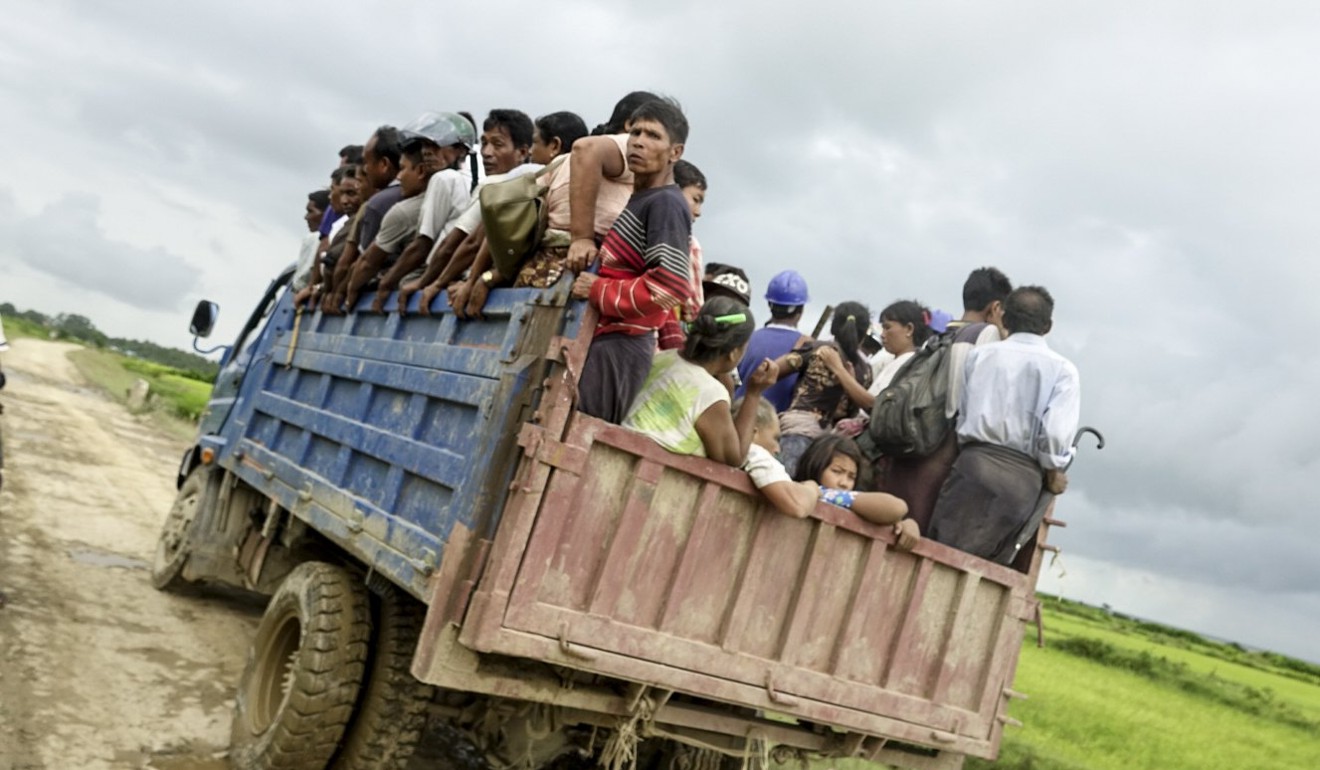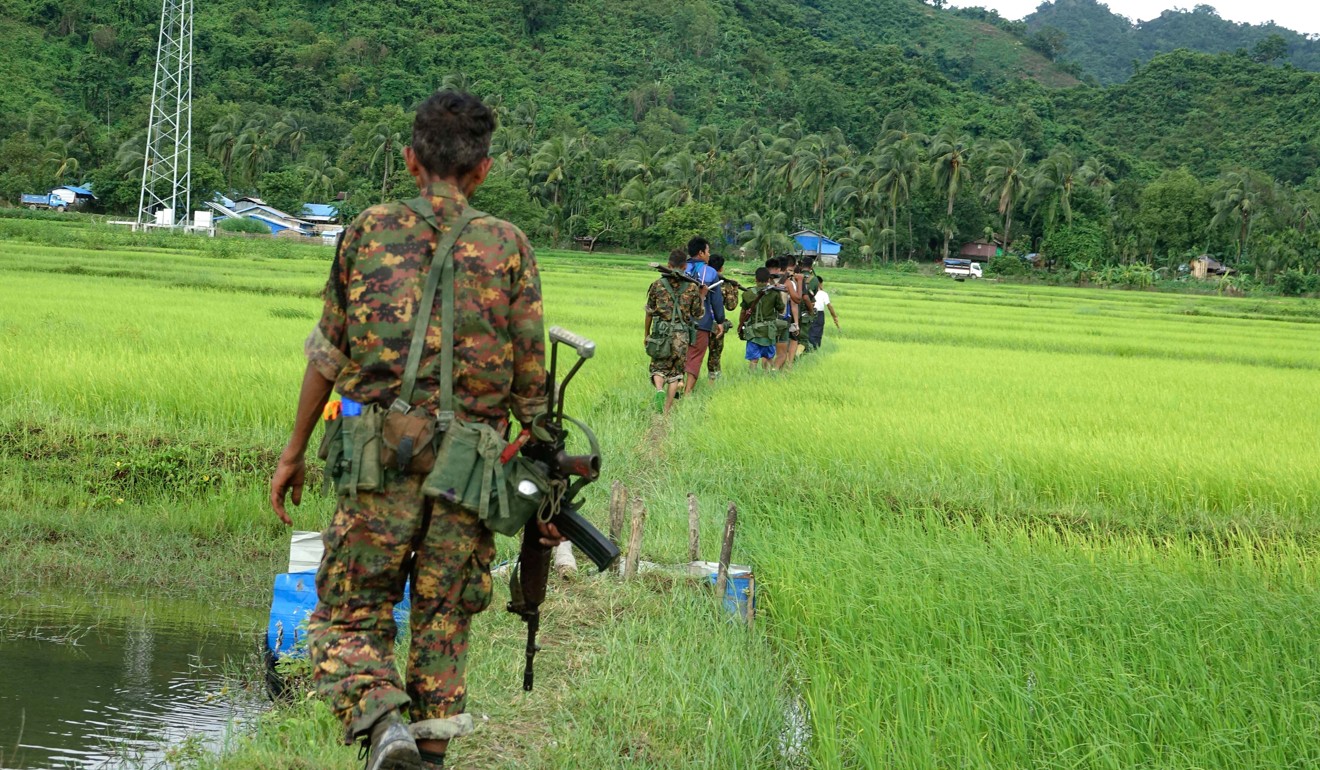
United States urges non-violent response from Myanmar forces after clashes with Rohingya militants leave 89 dead
Police fought off groups of as many as 100 attackers armed with guns, machetes and home-made grenades in Rakhine state
The United States has urged Myanmar authorities to avoid a response that would inflame tensions after an attack by Rohingya militants left 12 security personnel and 77 Rohingya Muslims dead.
The office of the country’s leader, Aung San Suu Kyi, said on Friday that military and border police responded to the attacks by launching “clearance operations”.
Police fought off groups of as many as 100 Rohingya attackers who were armed with guns, machetes and home-made grenades. The captured weapons were shown in photos posted online by the government.
A witness in Maungdaw township in Rakhine state said soldiers entered her village at about 10am, burned homes and property and shot dead at least 10 people.
The witness, who asked to be identified only as Emmar, said villagers fled in many directions but mostly to a nearby mountain range. She said gunshots and explosions could be heard and smoke could still be seen late Friday evening.
Watch: Rohingya flee Myanmar for Bangladesh after fresh wave of violence

Suu Kyi called the attacks “a calculated attempt to undermine the efforts of those seeking to build peace and harmony in Rakhine state”.

State Department spokeswoman Heather Nauert said in Washington that as security forces act to prevent further violence and bring the perpetrators to justice, they should respect the rule of law and protect human rights and fundamental freedoms.
She said the attacks underscored the importance of the government implementing recommendations of a commission that is chaired by former UN chief Kofi Annan. The commission published its final report on the day of the attacks, recommending the government act quickly to improve economic development and social justice in Rakhine state to resolve violence between Buddhists and the Rohingya.
Annan condemned the new attacks, saying “no cause can justify such brutality and senseless killing”, and urged the government to exercise restraint and “ensure that innocent civilians are not harmed”.

Suu Kyi’s office said on Facebook page that the attacks were intended to coincide with the release of Annan’s report.
The latest clashes were deadlier than a string of attack last October by the militants on three border posts that killed nine policemen and set off months of brutal counter-insurgency operations by Myanmar security forces against Rohingya communities in Rakhine state. Human rights groups accused the army of massive human rights abuses including murder, rape and burning down more than 1,000 homes and other buildings.
The army’s abuses fueled further resentment toward the government among the Muslim Rohingya, most of whom are considered by Myanmar’s Buddhist majority to be illegal immigrants from neighbouring Bangladesh and are denied citizenship and its rights. ARSA took advantage of the resentment by stepping up recruitment of members.
The Rohingya have long faced severe discrimination and were the target of violence in 2012 that killed hundreds and drove about 140,000 people from their homes to camps for the internally displaced, where most remain.
According to the UN, more than 80,000 Rohingya have fled to Bangladesh since last October’s clashes.

